Are you considering a move with your family and feeling a bit overwhelmed by the process? Relocating can be both exciting and challenging, but the right assistance can make all the difference. From finding a new home to settling in smoothly, there are various resources available to help ease your transition. Ready to discover how you can navigate this journey with confidence? Let's dive into the details!
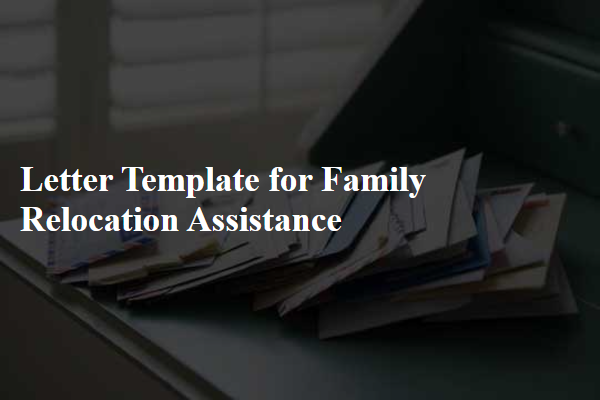
Clearly Define Relocation Purpose
Relocating can be a significant life event for families. The purpose of this relocation often stems from factors like job opportunities, career advancement, or lifestyle changes. Many families move to cities with reputable school districts, such as the top-rated public schools in Naperville, Illinois, or the vibrant community activities in Austin, Texas. Additionally, families may seek a change in environment, such as relocating from urban settings to suburban areas for increased space and better quality of life. Understanding these motivations helps in crafting a comprehensive relocation assistance plan that addresses the unique needs of each family member, such as finding suitable housing, local amenities, or community support networks.
Specify Family Members Affected
Recent family relocations often bring various challenges and stressors for all involved members, including parents, children, and even pets. The parents may face job adjustments or changes in workplace dynamics, particularly if they belong to sectors like healthcare or technology, requiring a seamless transition to new roles or companies. Children may experience difficulties in adjusting to new school environments, often necessitating specialized support services, such as tutoring or counseling, especially if moving to a new city like Austin, Texas, which has a unique educational system. Additionally, pets may need additional care or regulations adherence to ensure their comfort during the transition; for example, certain breeds might require special licenses in new areas. Understanding the diverse implications of relocation for each family member ensures a smoother transition process overall.
Detail Financial Assistance Requirements
Families relocating for work opportunities may seek financial assistance to ease the transition costs. Common support includes relocation bonuses, covering moving expenses such as truck rental fees or professional movers. Families may also request reimbursement for temporary housing costs, such as hotel stays or short-term rentals (typically for 30-90 days). Additional funds can assist with utility connection fees and transportation for family members during the transition. Furthermore, relocation packages might provide assistance with home sale or purchase transactions, such as closing costs or agent commissions. Understanding specific eligibility criteria, such as pre-defined relocation distance (often exceeding 50 miles) and employment verification, is essential for accessing these benefits.
Highlight Important Dates and Timelines
Family relocation involves significant planning and coordination to ensure a smooth transition. Key dates include the finalized move date, typically set six weeks in advance to allow adequate preparation. Two weeks prior, the family should schedule utility disconnections at the current location and connections at the new address. Essential milestones include securing moving services, typically booked one month ahead, ensuring peak availability during the busy summer months. Suppliers such as U-Haul or Mayflower should be contacted in advance. Additionally, school enrollment deadlines for the new area could vary, requiring registration at least two weeks before the first day. Decluttering efforts might begin three weeks ahead of the move to make packing efficient. Tracking these important timelines assists in managing logistics and ensures crucial tasks are completed on schedule, minimizing stress during the moving process.
Address Housing and Community Needs
Family relocation assistance programs are designed to address housing and community needs during transitions, such as moves to new neighborhoods. Programs often provide financial aid for housing expenses, including rent and utility costs, especially in high-demand areas like urban centers (for instance, New York City or San Francisco) where housing can be prohibitively expensive. Comprehensive services might include assistance in finding affordable housing options, access to community resources like schools and healthcare centers, and support in navigating local regulations. Additionally, relocation programs may offer services such as homebuyer education workshops, financial literacy training, or help connecting with local social services, thereby enhancing the well-being of families as they integrate into new communities.

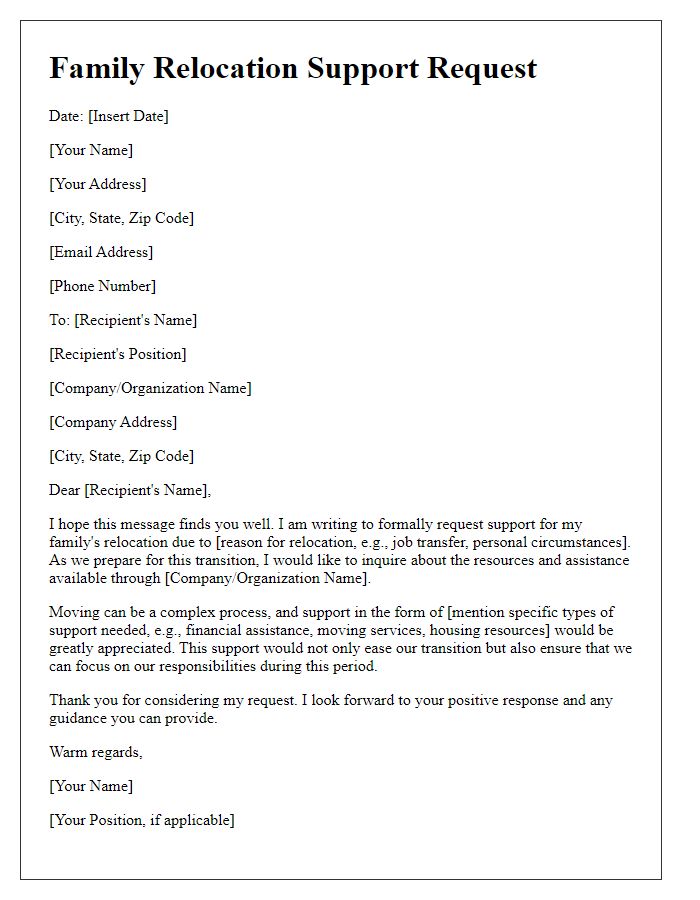
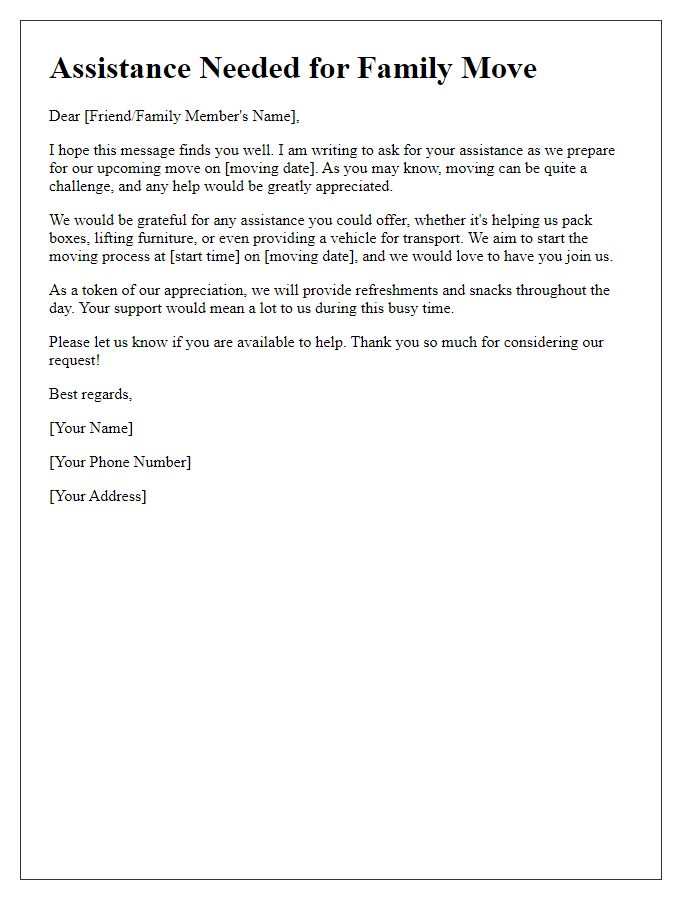
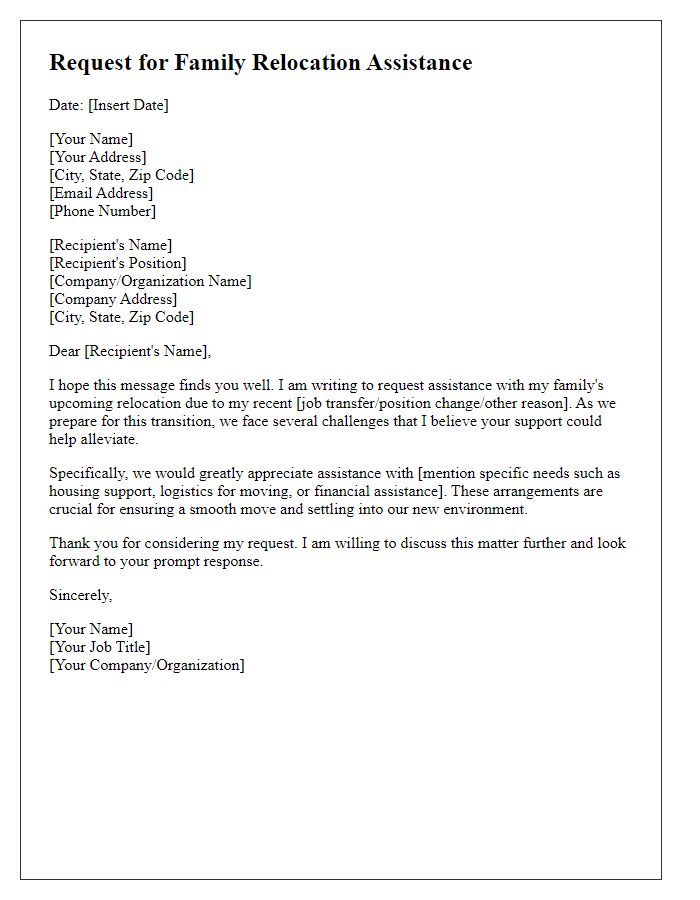
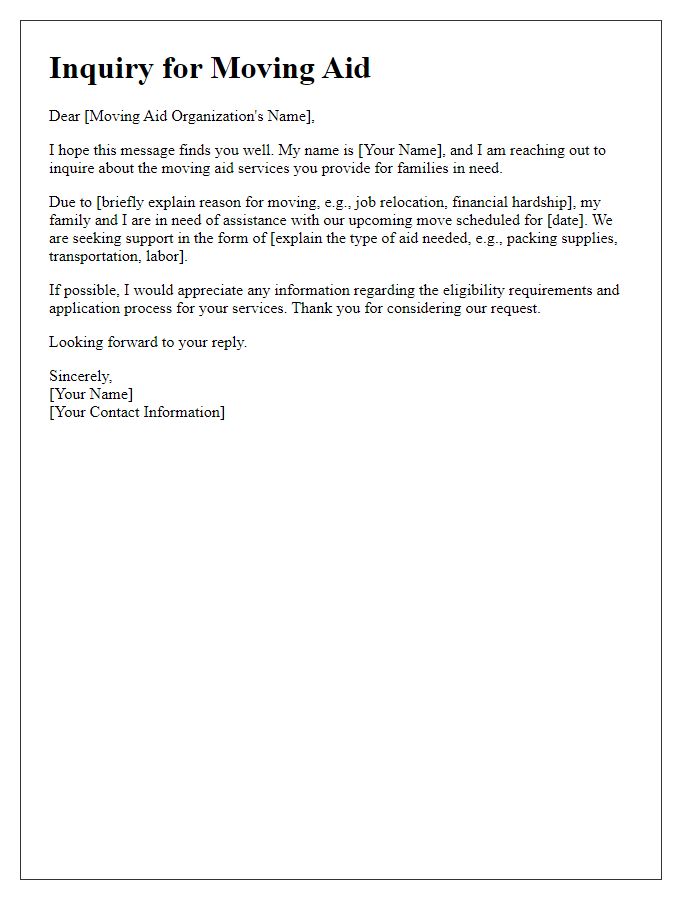
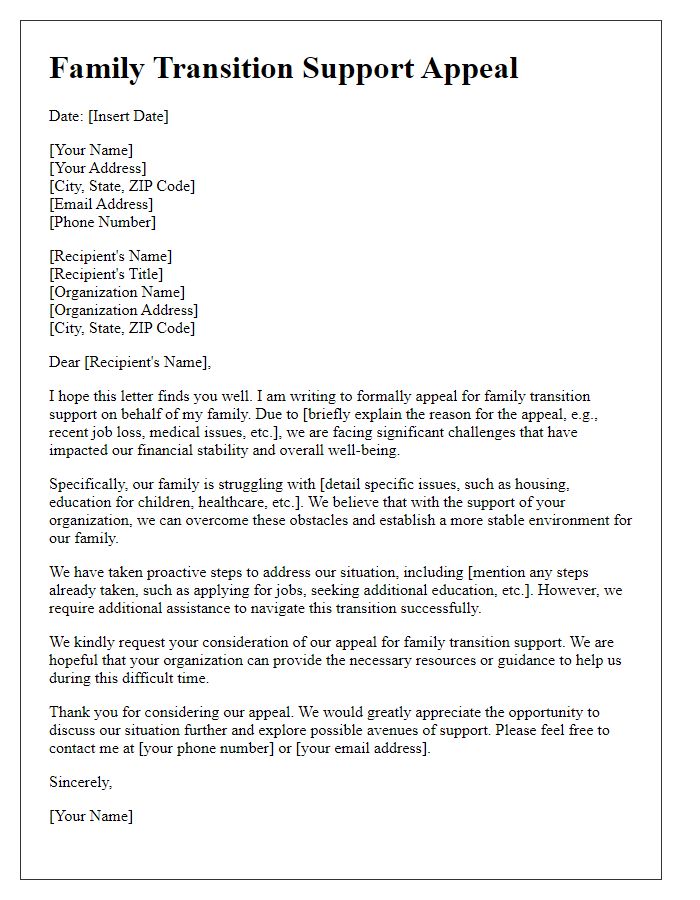
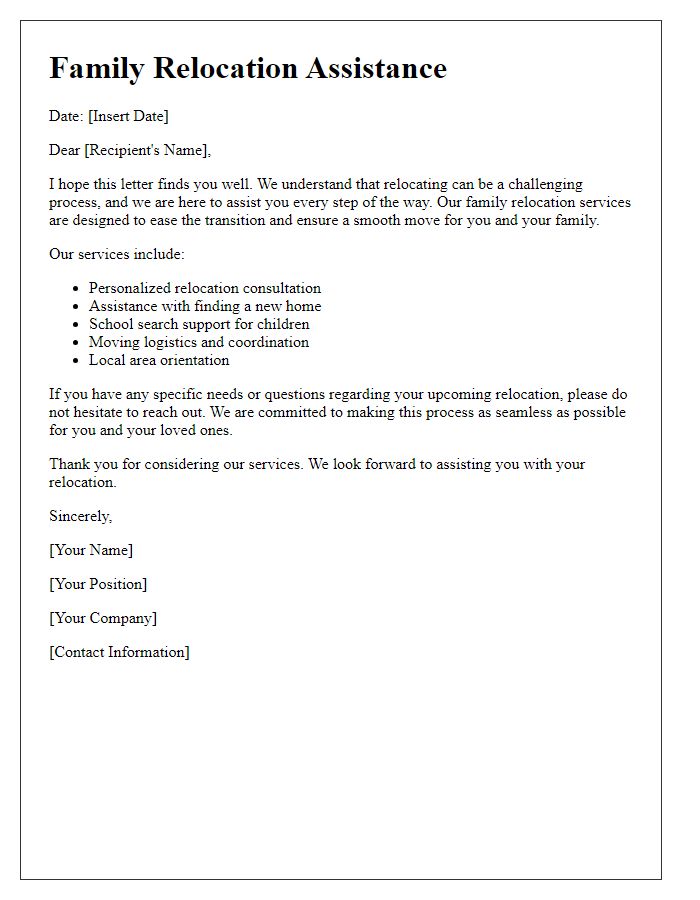
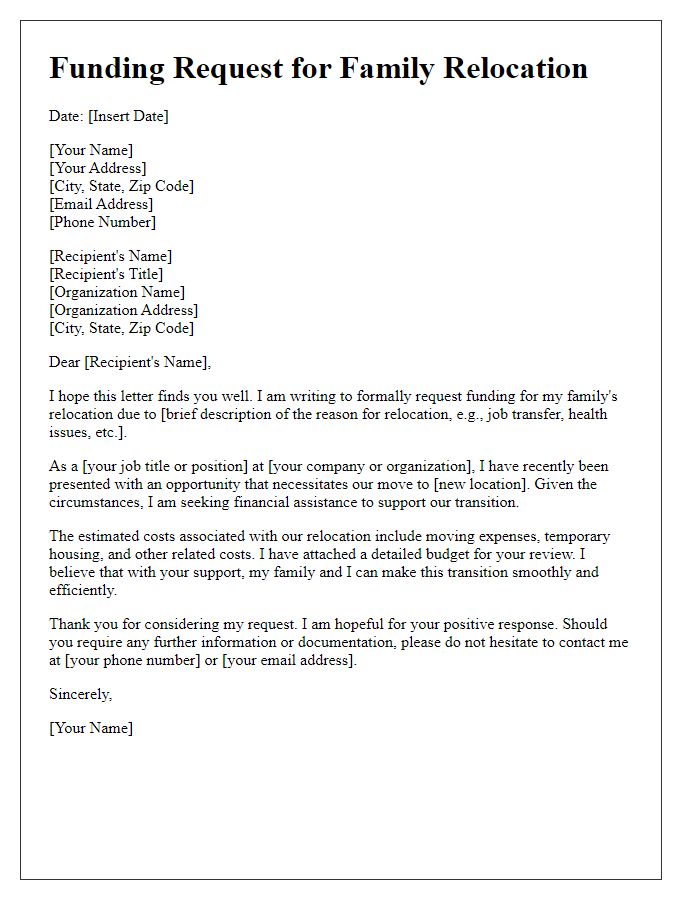
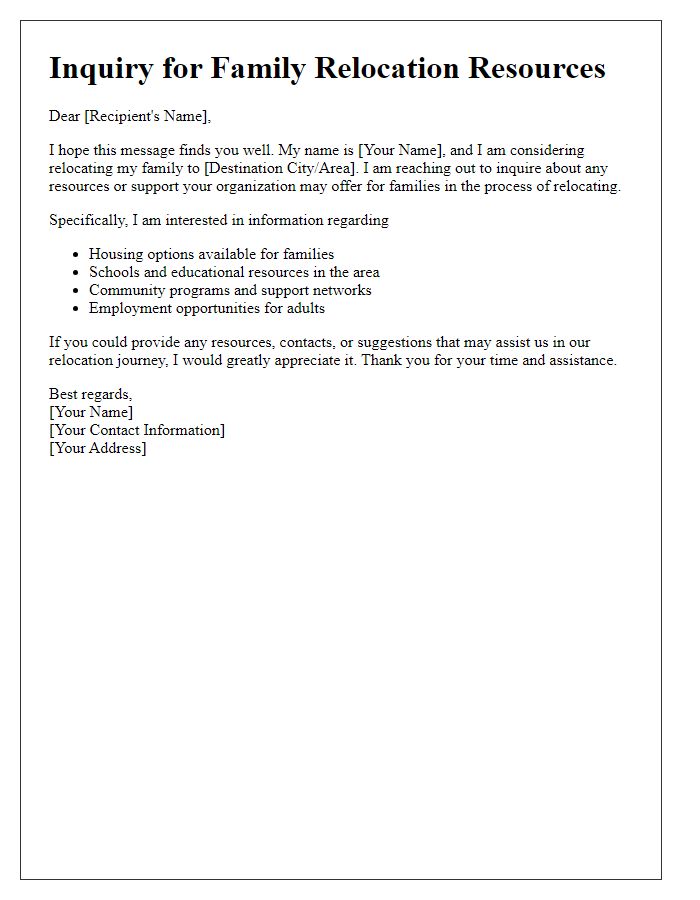
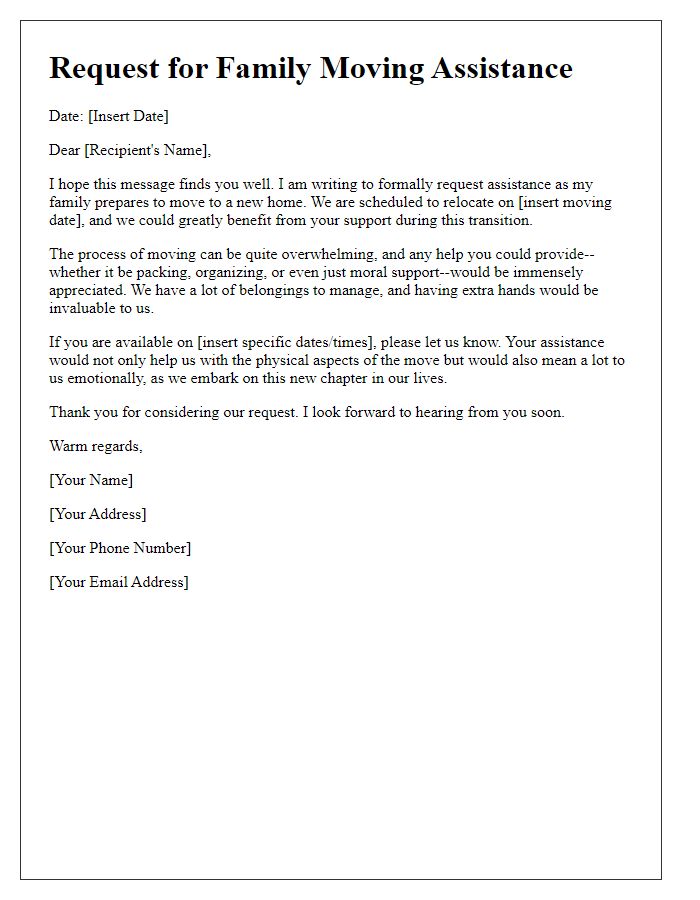
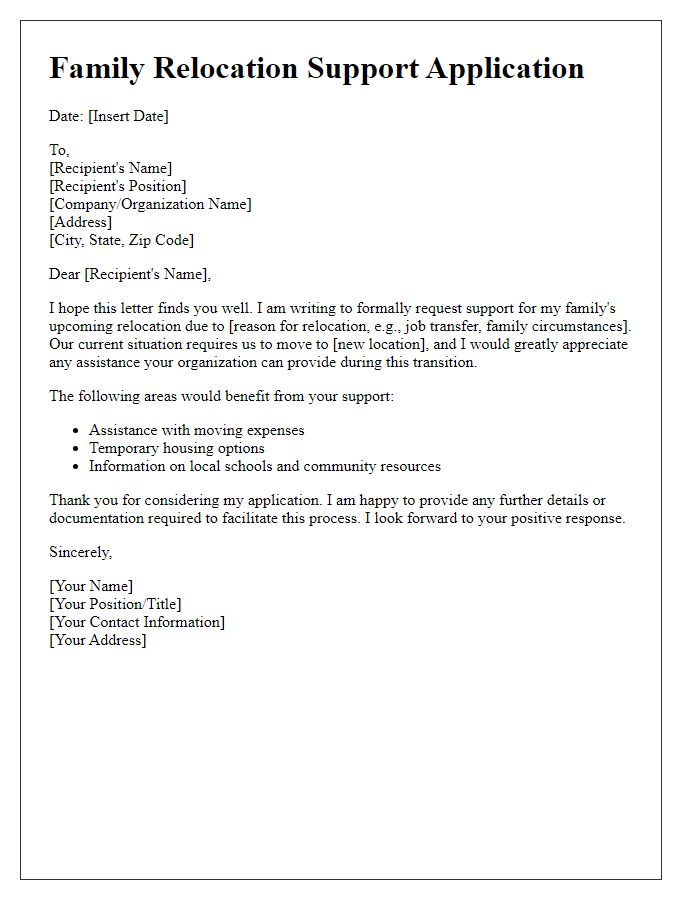


Comments